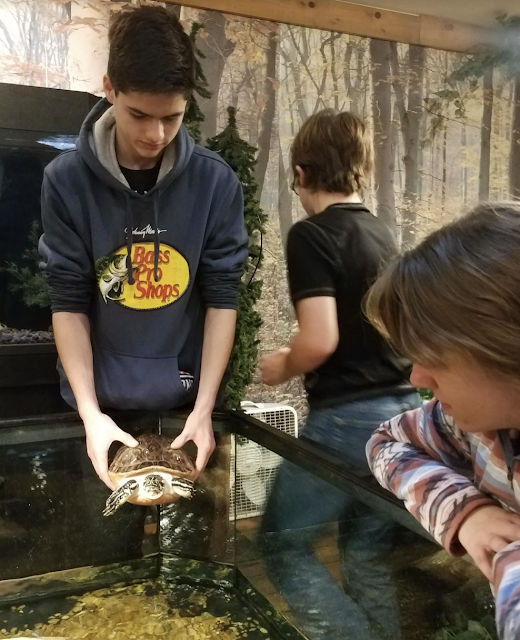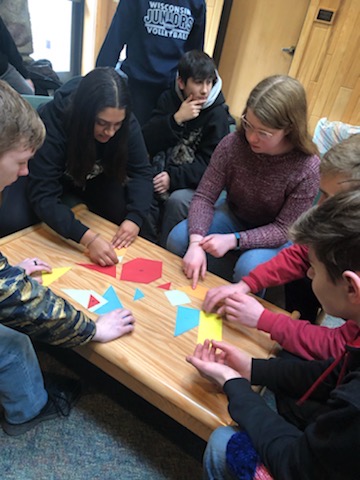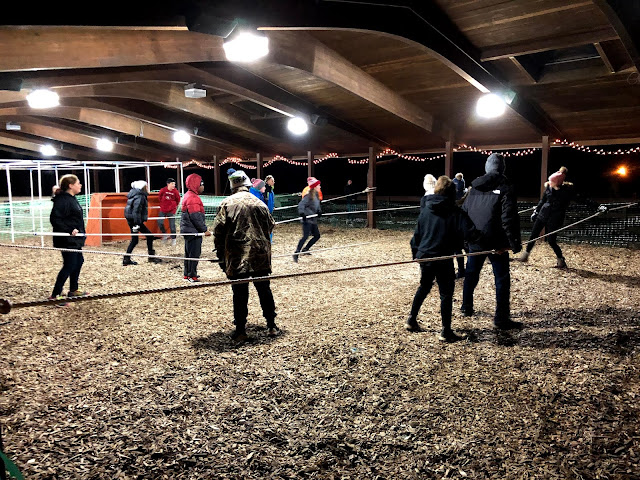KARCHER STAFF BLOG
2019-2020 Karcher Calendar
Facebook Page: https://www.facebook.com/KarcherMiddleSchool/
BASD Staff Blog: https://basdstaffnews.blogspot.com/
2019-2020 Karcher Calendar
Facebook Page: https://www.facebook.com/KarcherMiddleSchool/
BASD Staff Blog: https://basdstaffnews.blogspot.com/
______________________________________________________________________________
Kudos
_____________________________________________________________________________________________________
- What a quick week we just had! Kudos to another successful Outdoor Education experience for our 8th graders! Thank you to Mike Jones, Stephanie Rummler, Jenny Geyso, Stacy Stoughton, Kurt Rummler, Jack Schmidt, Alyssa Riggs, Donna Sturdevant, Barb Berezowitz, Trent Tonn, Pam Bauer, Erika Fons, Johnny Aguirre, Stacey Steeples, Jean Fifer, and Vicky Leuck for all of our efforts at Camp Timberlee with our students!
- Thank you to Amanda Thate and Dina Weis for your planning and efforts with our 8th graders that did not attend Outdoor Education - you did a great job making the time educational and fun at the same time!
- Thank you to Kris Thomsen and Kim Moss for your continued behind the scenes for our new iTime rotations!
- Last but not least... Thank you to Jon Nelson for helping come up with a schedule so that our music and PE groups could meet with AVI Systems this past Thursday with Rod Stoughton, Dustan Eckmann, and Hans Block. Teachers from Dyer along with Becky Sagedal and Scott Christensen also attended the meetings. It was great to have you share your needs and wants with AVI Systems so that the new building is designed to be student and teacher friendly!
- Please welcome Brittanie Gayhart to our team! She officially started with us on January 2 but you will start to see her regularly starting tomorrow (she had a vacation already planned prior to accepting the position which is why she was gone last week)! Brittanie will be serving as a special education aide to assist with the transition for WIN students into our regular education classrooms (along with other potential needs as well). Welcome to the team Brittanie!
Article this week:

______________________________________________________________________________Test Better, Teach Better
Chapter 1. The Links Between Testing and Teaching
You'd probably find it difficult to locate anyone, teacher or non-teacher, who doesn't recognize that there's some sort of a relationship between teaching and testing. Just about everyone realizes that if a teacher does a great instructional job, that teacher's students will usu-ally perform better on tests. It's the other side of the equation that's less often understood, namely, that how a teacher tests—the way a teacher designs tests and applies test data—can profoundly affect how well that teacher teaches.
The connection between one's teaching and one's testing is a crit-ical one that, if properly understood, can lead to a substantial increase in instructional effectiveness. I want you not only to accept the idea that testing can help teaching, but also to act on that idea. I want you to pick up tangible instructional payoffs from linking your tests to your teaching. You'll teach better, and your students will learn more. You'll be a better teacher, and I'll be a happy author. Let's get started.
What's in a Name?
I need to define some terms as we get under way. First, what is a test or, more specifically, what is an educational test? Simply put, an educational test is a formal attempt to determine a student's status with respect to specific variables, such as the student's knowledge, skills, and attitudes. The adjective “formal” in the previous sentence is important, because it distinguishes a test from the many casual judgments that teachers routinely make about their students. For example, during my first year of teaching (in a small eastern Oregon high school), I had a student named Mary Ruth Green. I could almost always tell (or so I thought) how well Mary Ruth had mastered the previous night's English homework assignment. When it came time to discuss the homework topic, if Mary Ruth was animated and eager to contribute, I concluded that she knew the assigned stuff. If she sat silently and avoided eye contact with me, however, I guessed that she and the previous night's homework topic were unacquainted.
I made all sorts of on-the-spot judgments about what Mary Ruth and my other students knew, but those judgments were informal ones and often based on pretty skimpy observational data. In contrast, a test entails a systematic effort to get a fix on a student's status with respect to such things as the student's ability to perform an intellectual skill—to compose a job-application letter, for instance, or to carry out an hypothesis-testing experiment in a chemistry class.
For many people, the word test conjures up images of traditional, paper-and-pencil forms (multiple-choice exams or True-False quizzes). Perhaps this explains why a growing number of educators prefer to use the term assessment, which seems to embrace both traditional forms of testing and comparatively recent ones like looking for evidence of learning by examining student-generated work portfolios or group reports of experimental projects. Still, as long as you don't restrict yourself to only traditional testing approaches, the terms test and assessment are really interchangeable. And while we're swimming in this particular synonym pool, let me toss in two more: the slightly technical-sounding measurement and the serious-sounding examination (or exam). Each of these four terms describes a formal attempt to determine a student's status with respect to an educationally relevant variable. In this book, you'll find that I use all four interchangeably, not for any subtle reasons, but just because I get tired of using the same word all the time.
Why We Test
Human beings are tough to figure out. Ask any psychiatrist. Ask yourself. And young human beings in grades K-12 are no exception. To illustrate, if a teacher wants to determine what Ted's ability to read is, the teacher won't find that information tattooed on Ted's arm. Ted's reading ability is covert. The teacher must figure out how to uncover that hidden ability. So the teacher whips up a 15-item reading test calling for Ted to read several short passages and then answer a series of questions getting at (1) the central messages in the passages and (2) certain key details in those passages. Ted takes the test and does a great job, answering each of the 15 items correctly. The teacher then makes an inference about Ted's covert reading ability based on Ted's overt performance on the 15-item test.
If you think about it, just about every worthwhile thing that educators try to promote is unseeable. Consider spelling ability as another example. A child's spelling ability cannot be seen, only inferred. What goes through the teacher's head is something like this:
Martha did well on this month's spelling test. She wrote out “from scratch” the correct spellings for 18 of 20 words I read out loud. It is reasonable for me to infer, then, that Martha possesses a really high level of spelling ability—a level of ability that would display itself in a fairly similar fashion if Martha were asked to take other, similar 20-item spelling tests.
Remember, what the teacher sees when Martha spells the word “awry” properly is only Martha's spelling of “awry” and not Martha's spelling ability. The teacher needs to infer the level of Martha's spelling skill by seeing how well Martha does on her spelling tests. The more spelling tests that Martha takes, the more confidence the teacher can have in any inferences about Martha's spelling skill. An inference about a student can be based on a single test; a more accurate inference will be made if multiple tests are employed.
Likewise, a child's ability to perform basic arithmetic skills is unseeable; it's something we infer from the child's performance on an exam (or, preferably, more than one exam) dealing with adding, subtracting, multiplying, and dividing. Children's confidence in being able to present an oral report to their classmates is certainly unseeable, but again, we can infer it from students' responses to an assessment instrument constructed specifically to measure such things. (You'll learn more about that sort of noncognitive assessment in Chapter 8.)
So educational measurement is, at bottom, an inference-making enterprise in which we formally collect overt, test-based evidence from students to arrive at what we hope are accurate inferences about students' status with respect to covert, educationally important variables: reading ability, knowledge of history, ability to solve simultaneous equations, interest in social studies, and so on. The process is represented in Figure 1.1.
Figure 1.1. Educational Testing as an Inference-Making Process
Yes, as my experience with Mary Ruth and her homework showed, it is certainly possible for a teacher to make an inference about students based on informal, nontest evidence. Suppose your student Alvin gives you a note in which he had misspelled several words. Based on this evidence, you might infer that Alvin's spelling ability isn't all that wonderful. However, a formal assessment of Alvin's spelling skill, one based on a larger and more age-appropriate set of words, would increase the likelihood of your making an accurate inference about Alvin's spelling ability.
The accuracy of these inferences is critical, because a teacher's understanding of students' knowledge, abilities, and attitudes should form the basis for the teacher's instructional decisions. And, of course, the more accurate the test-based inferences a teacher makes, the more defensible will be the teacher's instructional decisions based on those inferences.
This article will continue over the next two blogs.
This article will continue over the next two blogs.
Information/Reminders
__________________________________________________________________________________________________________________________
New Construction Information
- To separate out information just pertaining to the new middle school I put together a blog just for the 6-8 KMS building!
- Click HERE to access the new building blog. I will add information here when things come up and will always have the link here in the blog for all of you! It is also on the Karcher Calendar :)))
This week:
- Monday, January 13 - Threat Assessment Training
- Steve Berezowitz, Annie Phillips, and myself will be attending a Threat Assessment Training in Madison from 8-5.
- Every school district has to have members of their team attend this training to learn about what we already have in place and what tweaks might we want to consider moving forward.
- Jon Nelson will be covering the office area again!!! Thank you Jon!!
- There will not be iReady testing this week as we adjusted to start next week! Just an FYI.
- Tuesday, January 14 - Start of new iTime rotation!
- 7th grade math data was analyzed and pulled first, ELA second this time.
- 8th grade ELA data was analyzed and pulled first, math second this time.
- Click HERE to see the iTime groups. Current groups are also listed on the first page of the Karcher Calendar (that link is updated).
- A copy of where your advisory students should go for Tuesday is in your mailboxes.
- If you have any questions about iTime please let me know! And thank you for all of your dedication and efforts to ensure all students are getting individualized support in the areas of reading and math!
- Tuesday, January 14 - I will be at the District Office starting at 9:00 for our secondary principal's meeting. We meet on Tuesday mornings as an instructional team all together (K-12), or secondary, or elementary. Just thought I have never shared this and thought it might be good for you to know where I am!
- Wednesday, January 15 - PLC time is for your Essential Skill or Strategy/Skill group time (in your rooms).
- Thursday, January 16 - I will be meeting with Scherrer and PRA (along with Dan and Ruth) starting at 11:00.
- This takes place every other Thursday in the old FACE room.
Looking ahead:
- On January 20, from 4-9 PM, 20% of purchases at The Coffee House at Chestnut and Pine will go back to the Art Department for student supplies.
- Note we have morning assemblies for our Karcher Character Awards on both January 21 and 22.
- Click HERE to enter in the two students you are picking (electives you can pick 4 - two 7th, two 8th). Make sure you put your student's names in this Excel Document as we do not want doubles! If the one you were thinking is taken then please chose another student to recognize!
- The Character Awards are printed and by the mailboxes. Please take them for the students you are recognizing and put your "why" on the back for them so they have it to keep as well.
- End of the term - January 23!!!
- Posted grades for term 2 are due January 28 by 3:00pm.
______________________________________________________________________________
Pictures from the week
_____________________________________________________________________________________________________
Demon wrestling group ranging from elementary to our middle school students!
8th grade Outdoor Education!





















































